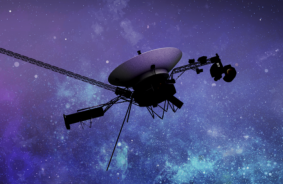Reviving youth has long been one of humanity's oldest desires. It seems that a marine creature is capable of this, reminiscent of "The Curious Case of Benjamin Button."
Typically, animals and humans are born, age, and die, but some species can escape the traditional life cycle, reverting to younger versions of themselves. A recent study, published in the Proceedings of the National Academy of Sciences, has discovered a new being with this superpower. The ctenophore Mnemiopsis leidyi showcased an extraordinary "time-traveling" ability to scientists.
“This work challenges our understanding of early animal development and body structure, opening new avenues for exploring the plasticity and rejuvenation of life cycles. The discovery of a new species that utilizes a unique 'time machine' raises exciting questions about how widespread this ability may be among the animal tree of life,” writes Joan J. Soto-Angel, a PhD student at the University of Bergen and co-author of the study.
At the heart of the research lies a serendipitous empirical discovery. Joan J. Soto-Angel began his investigation after a ctenophore larva suddenly appeared in the spot of an adult in his laboratory aquarium. However, it turned out to be the very same creature. The scientists attempted to recreate a scenario that could provoke reverse development and found that the adult organism could indeed revert to the larval stage under significant stress.
“Witnessing them slowly transform into a typical larva, as if traveling back in time, was thrilling. Over a few weeks, they not only changed their morphological features but also exhibited entirely different feeding behaviors typical of larvae,” explained Soto-Angel.
Some studies suggest that ctenophores are likely among the first animals to have ever existed. Thus, reverse development may be an original capability.
“This is a very exciting time for us. This thrilling discovery will open doors to many important findings. It will be fascinating to uncover the molecular mechanism governing reverse development and what happens to the animal’s nervous system during this process,” writes Paul Burkhardt, a researcher from the University of Bergen and another co-author of the study.
The researchers propose that life cycle plasticity, the organism's ability to alter aspects of its biology when exposed to specific environmental triggers, may be more widespread than previously thought. Human advancements in rejuvenation are quite modest, if they exist at all, but studying animals might one day improve those results.
Source: Gizmodo














Comments (0)
There are no comments for now